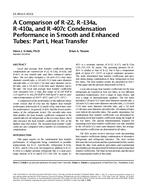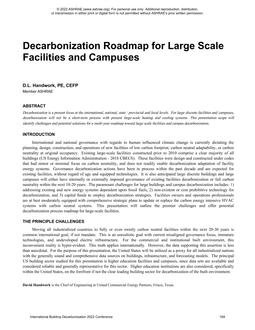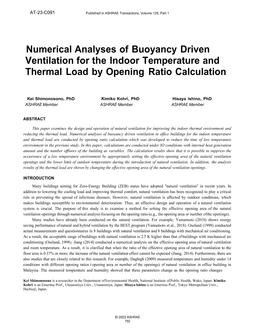
4313 — A Comparison of R-22, R-134a, R-410a, and R-407c Condensation Performance in Smooth and Enhanced Tubes: Part I, Heat Transfer (same as SE-99-4-3)
Local and average heat transfer coefficients during condensation are reported for R-22, R-134a, R-410a, and R-407c in one smooth tube and three enhanced surface tubes. The test tubes included a 3/8 inch (9.52 mm) outer diameter smooth tube, a 3/8 inch (9.52 mm) outer diameter microfin tube, a 5/16 inch (7.94 mm) outer diameter microfin tube, and a 5/8 inch (15.88 mm) outer diameter microfin tube. The local and average heat transfer coefficients were measured over a mass flux range of 92,100 lb/ft 2 ·h (125 kg/m 2 ·s) to 442,200 lb/ft 2 ·h (600 kg/m 2 ·s) and at saturation temperatures of 104°F (40°C) and 122°F (50°C). A comparison of the performance of the different refrigerants reveals that R-134a has the highest heat transfer performance followed by R-22 and R-410a, which have similar performances. In general, R-407c had the lowest performance of the refrigerants tested. The microfin tube more than doubles the heat transfer coefficient compared to the smooth tube for all refrigerants at the low mass fluxes, but it only increases the heat transfer coefficients by 50% at the highest mass flux tested. The measured heat transfer coefficients are also compared with a number of correlations for condensation.
Units: Dual
Citation: ASHRAE Transactions, vol. 105, pt. 2
Product Details
- Published:
- 1999
- Number of Pages:
- 14
- File Size:
- 1 file , 480 KB
- Product Code(s):
- D-SE994313


